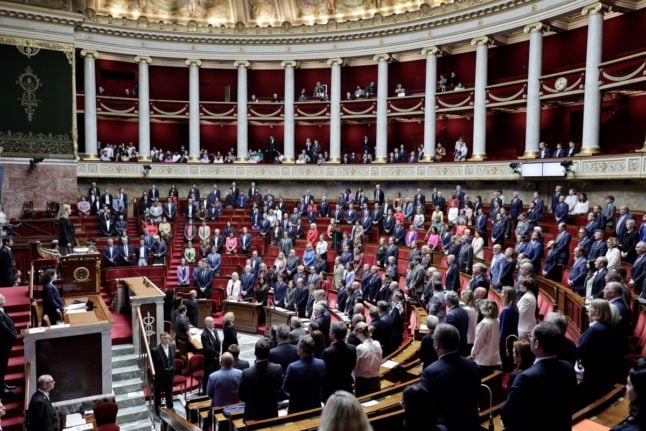Seven weeks after it was announced by President Emmanuel Macron, French people are now used to being asked to show their credentials as they enter restaurants, bars, gyms or museums – and polls show a majority in favour of the checks.
The system requires everyone to prove that they have been either vaccinated or recently tested negative for Covid-19, or have recovered from the illness in the last six months.
“At the beginning, it wasn’t a given that it would work,” said Djillali Annane, a doctor and professor who heads the intensive care unit of the Raymond-Poincare de Garches hospital in the Paris region.
“People have understood it, it’s relatively well respected and it’s contributing undeniably in keeping the fourth wave in check for the moment.”
Though criticised as discriminating against the unvaccinated, it has given France’s efforts to innoculate its population a sustained boost since mid-July, with millions rushing to get jabbed in order to avoid regular testing.
Measured by the proportion of citizens who have received at least one dose, France overtook the United States and Germany in late July and early August and has surpassed Britain and Italy in recent days, according to official data analysed by AFP.
The country has given at least one dose to 72.1 percent of its population and, with Sweden and Finland, is vaccinating at the joint highest rate in the EU: the equivalent of 0.6 percent of the population receives a jab each day.
It still has ground to make up on Europe’s top vaccinators such as Spain, Malta and Portugal, where more than 80 percent of people have received a first dose, while Canada remains above France in the G7 grouping of rich countries.
Political boost
For Macron, who is expected to seek a second term in presidential elections next April, the generally positive response to the pass system has helped boost the government, polls show.
Between 64-77 percent of people support the pass, while confidence in the government’s handling of the health crisis is at its highest level since the pandemic began, according to recent surveys by the Elabe group.
Bernard Sananes, the head of Elabe, told AFP that the 43-year-old head of state remains a “fragile favourite” for next year’s unpredictable polls when his record on Covid-19 will be under scrutiny.
“He gives the impression of having come through the crisis so far, having had some difficult moments — but without leaving any space for an alternative, for someone to say ‘so-and-so would have done it better’,” he explained.
READ ALSO 6 reasons France’s Covid vaccination programme improved so dramatically
At the start of the year, when France made an embarrassingly slow start to jabbing people, many pundits saw Macron’s future as being on the line.
Other controversies such as a lack of masks at the beginning of the crisis have given ammunition to his opponents, including far-right leader Marine Le Pen.
Ideological opposition?
The health pass system has provoked anger in some quarters, leading to street demonstrations every Saturday where opponents denounce the president for turning France into a “dictatorship”.
Some unvaccinated protesters have even worn large yellow stars, comparing themselves to persecuted Jews during World War II, a parallel that has been criticised by Holocaust survivors.
Partly because of these excesses, the protest movement has never drawn broad public support, unlike others during Macron’s turbulent time in office, particularly the anti-government “yellow vest” movement in 2018-19.
“For most people, getting your phone out at the entrance to a restaurant has become a daily habit. They’ve not followed the protesters into the realm of an ideological debate,” Sananes said.
The opposition is “a minority, but not marginal”, drawing support from around 20-25 percent of French people, he said.
With schools and offices reopening after the summer holidays, doctors are bracing for a possible rise in cases which are averaging about 17,000 daily.
The momentum in vaccination efforts is also expected to fade in the weeks ahead, while fewer checks and increased cheating could also undermine the effectiveness of the health pass system.
Epidemiologist Catherine Hill says that all the Covid-19 indicators are trending downwards – from infection rates to the number of deaths – but there are still around 19 million unvaccinated people, half of them children under 12.
“The vector within the epidemic is going to be unvaccinated people. There’s a reservoir of nearly 20 million of them in which the virus can continue to circulate,” she told AFP.
And whatever the short-term successes, “we’re at the mercy of a new variant”, she added.



 Please whitelist us to continue reading.
Please whitelist us to continue reading.
Member comments